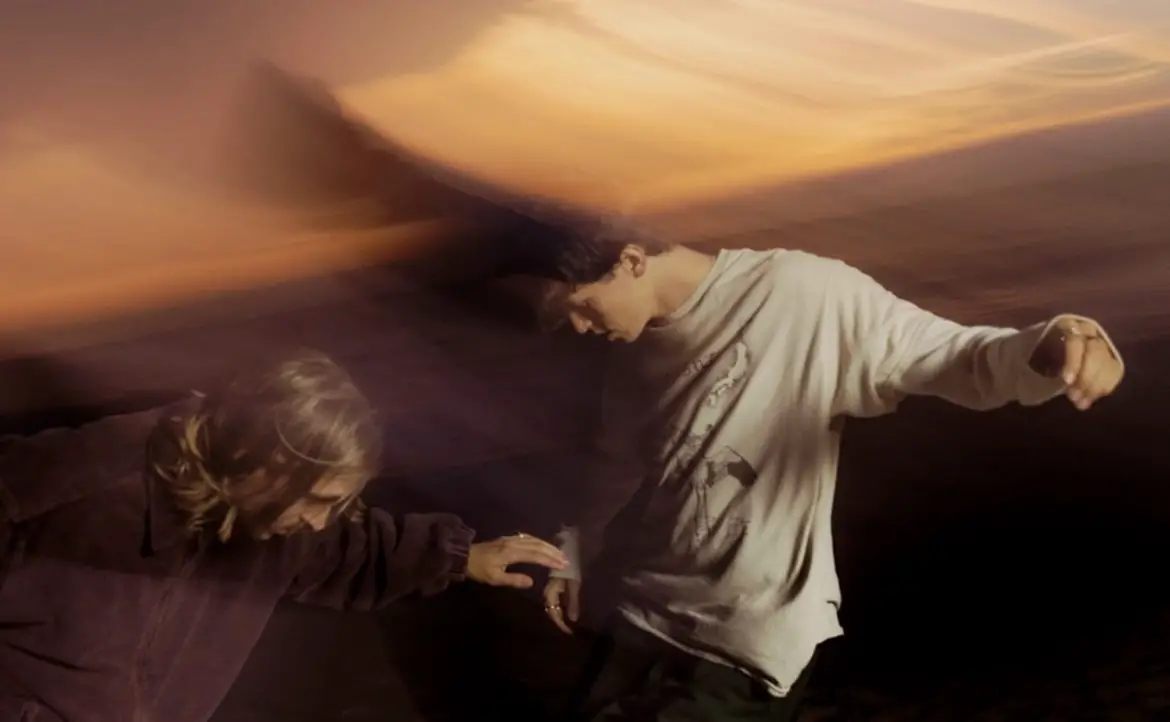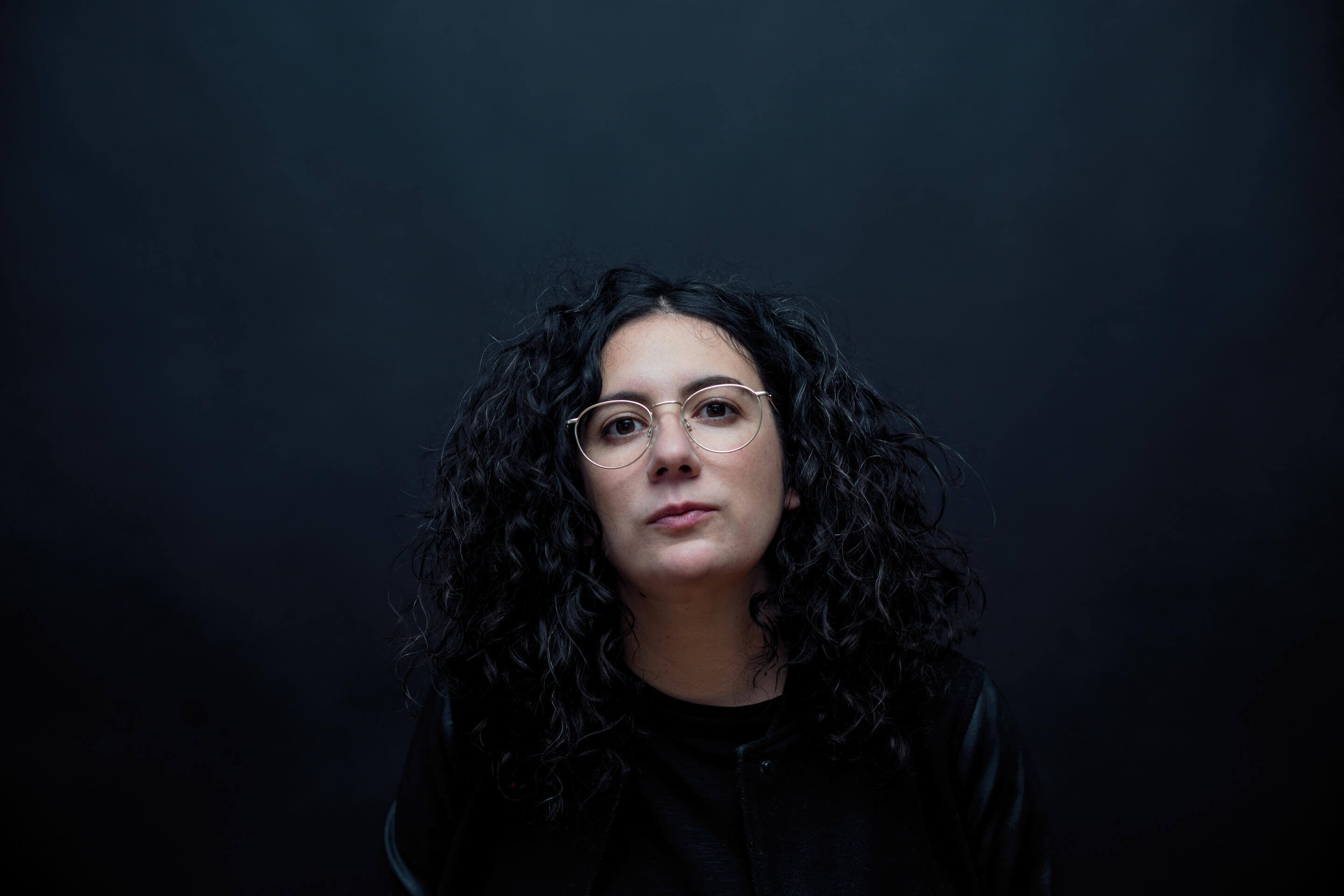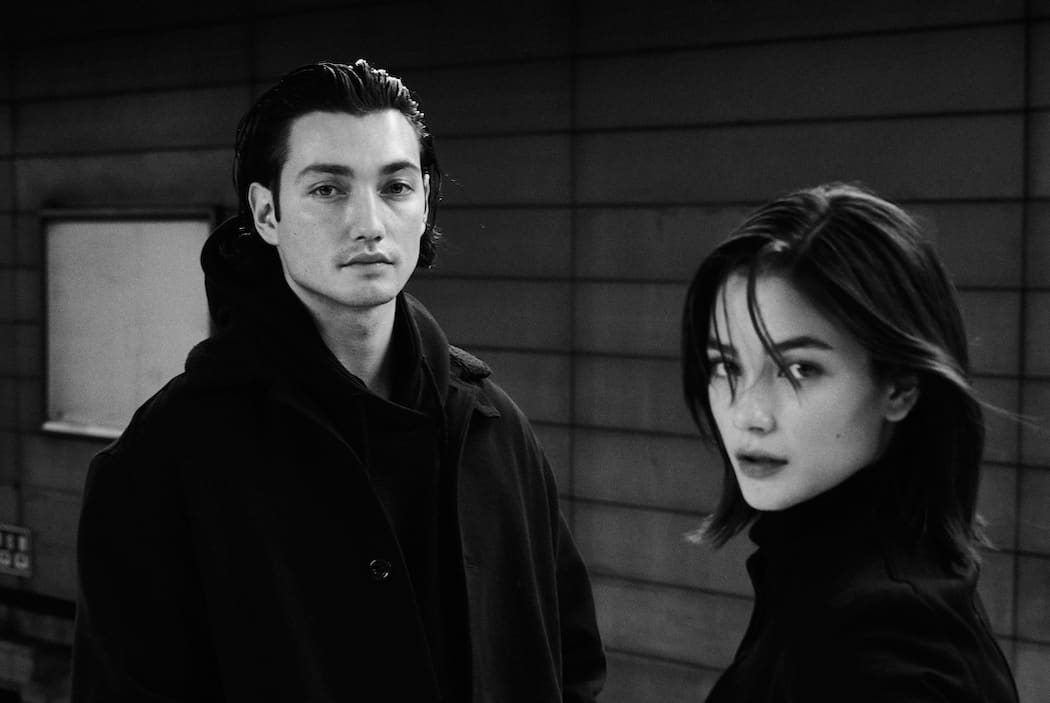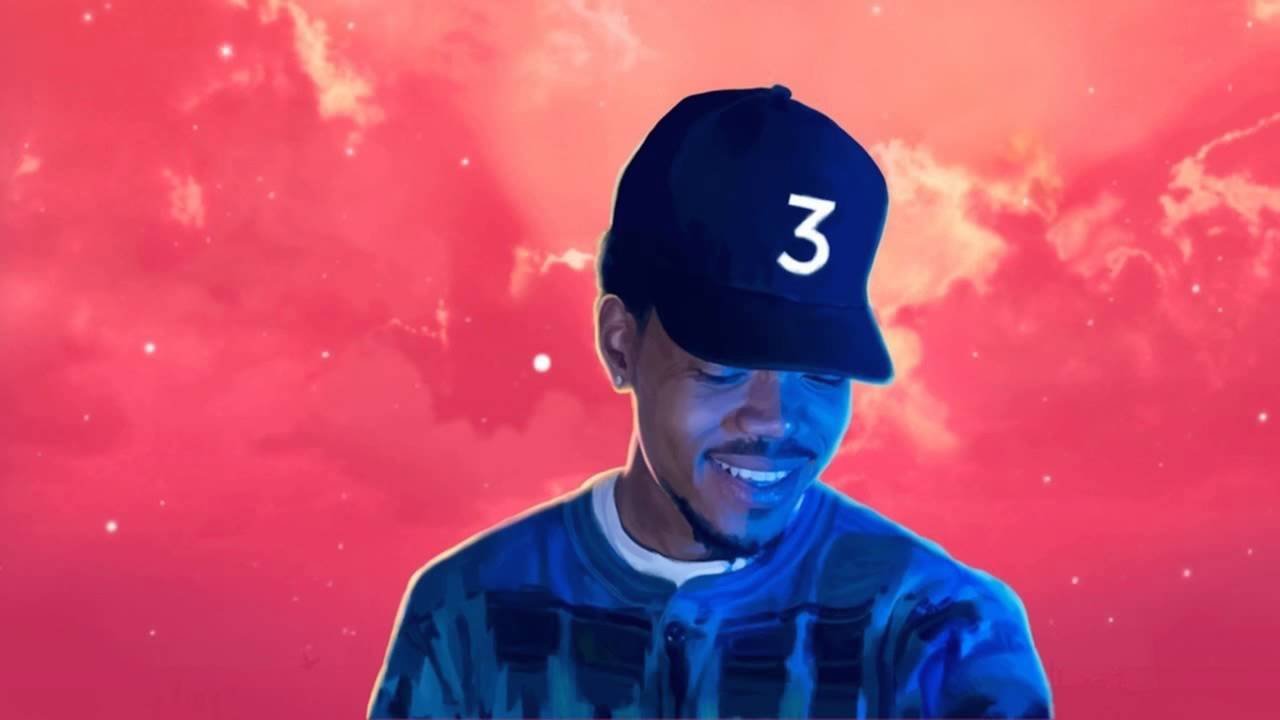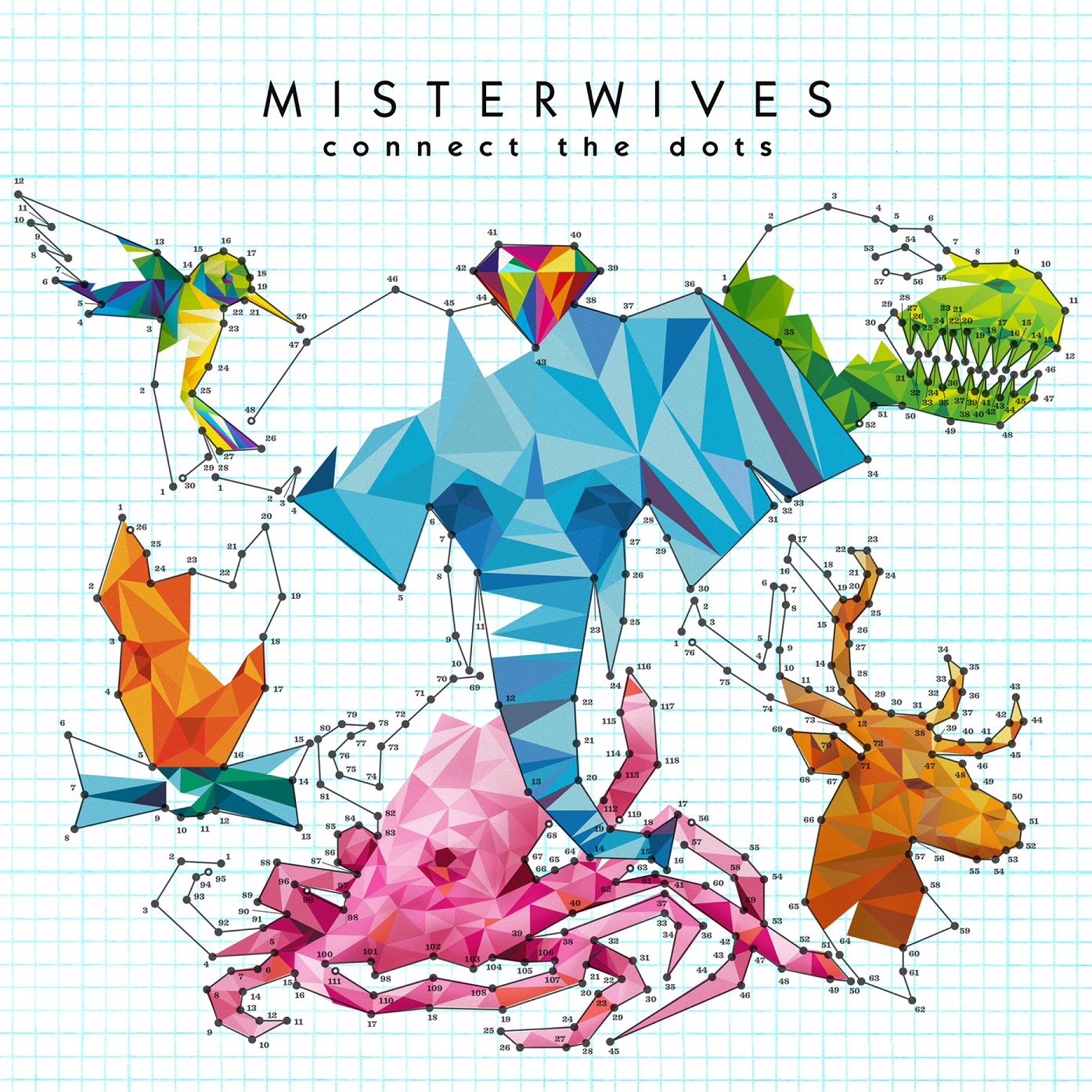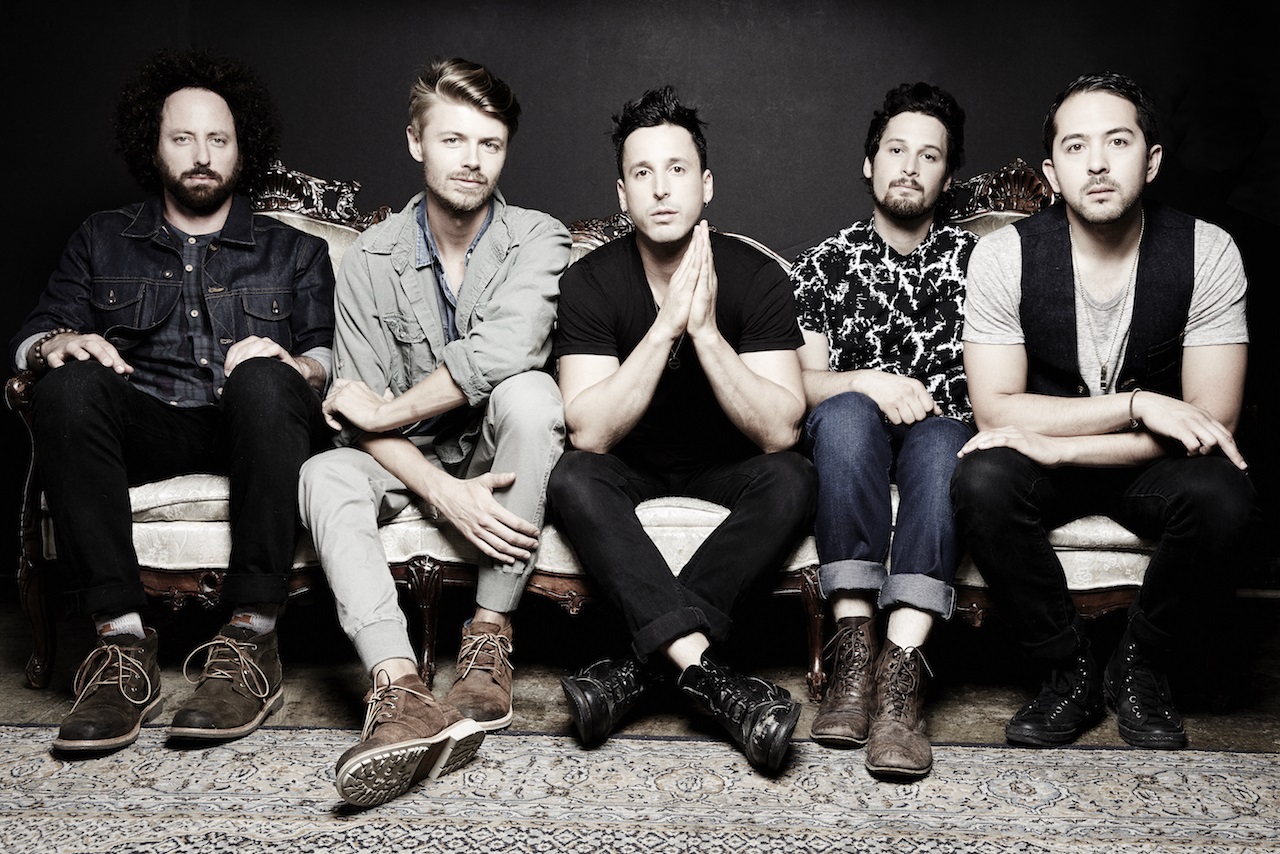DWLLRS – the viral pop duo of Bren Eissman and Joey Spurgeon – sit down with Atwood Magazine to talk bedroom bull sessions, the role of music in everyday life, and achieving stardom without ever taking the stage.
Stream: “End of It All” – DWLLRS
We want to embrace the tragic reality and duality of a chaotic and broken world, while also looking for hope, at the end of it all.
The best conversations are the ones that happen after 2am.
The stereo is turned low and voices are hushed. Everyone else long since left for home.
Ideas big and small weave around one another as the hours slip like running water into the dark. We soon push past the superficial and dive headlong into the core of ourselves, examining the existential questions that prod us somewhere offscreen. Why are we here? Where are we going? What is the meaning of it all? Or maybe we just want to hash out our latest breakup.
When Bren Eissman and Joey Spurgeon began sharing a room in college, these late-night chats became a lifestyle. They would dwell on everything from the big, universe-defining quandaries, to the mundanity of everyday life. It’s no wonder then that they entered the music world under the name DWLLRS.
“My dad came up with it,” Eissman explains. “He was like ‘Just call yourselves, ‘The Dwellers’ because you’re always overthinking.’ We heard that and thought, ‘That’s kind of a hard name. That’s sick.’”
Though they almost began life as a surf rock band (true story), they instead went to work crafting breezy, chilled-out soundscapes better suited to laidback sunsets on the beach than braving the waves. They dropped their debut single, the airy yet eerily erudite “And Then We’ll Be Alright” in early 2020. You know what happened next. Without a means to perform or venture out into the world in general, the pair knuckled down and honed their sound, morphing their deep contemplations into moody, cathartic pop.
“[It gave] us a lot of time to discover who we are being in this cut-off space making music,” Eissman reflects. “We’ve been able to meditate and talk on these topics of why we’re even doing music, what message we want to put out into the world, and what we want to do with our artistry and our expression.”
That deliberation led to a steadily building fanbase behind quarantine-erected walls. By 2022 they had produced not one, but three viral hits in the form of the aforementioned “And Then We’ll Be Alright,” the jangling bedroom pop of “Float Through the Ceiling,” and the lilting, ubiquitous “Blue Spirits.” Through it all, they never once took the stage.
That all changed last Summer when DWLLRS played their very first shows in New York and LA. Suddenly streaming numbers on a spreadsheet became throngs of people shouting songs that had only played in isolation back at them. “There’s such a duality in that experience,” Eissman elaborates. “For us it’s been three years of being cut off from that person-to-person music experience. For me, it was my first live music experience ever. It’s been wild.”
And the overthinking continues. Just last month, the pair rolled out “End of It All,” a tender, symphonic lament that rends heartstrings from the power of Eissman’s vocals. Like the Third Act crescendo of a Broadway melodrama, it seems to act as a coda to this era of DWLLRS.
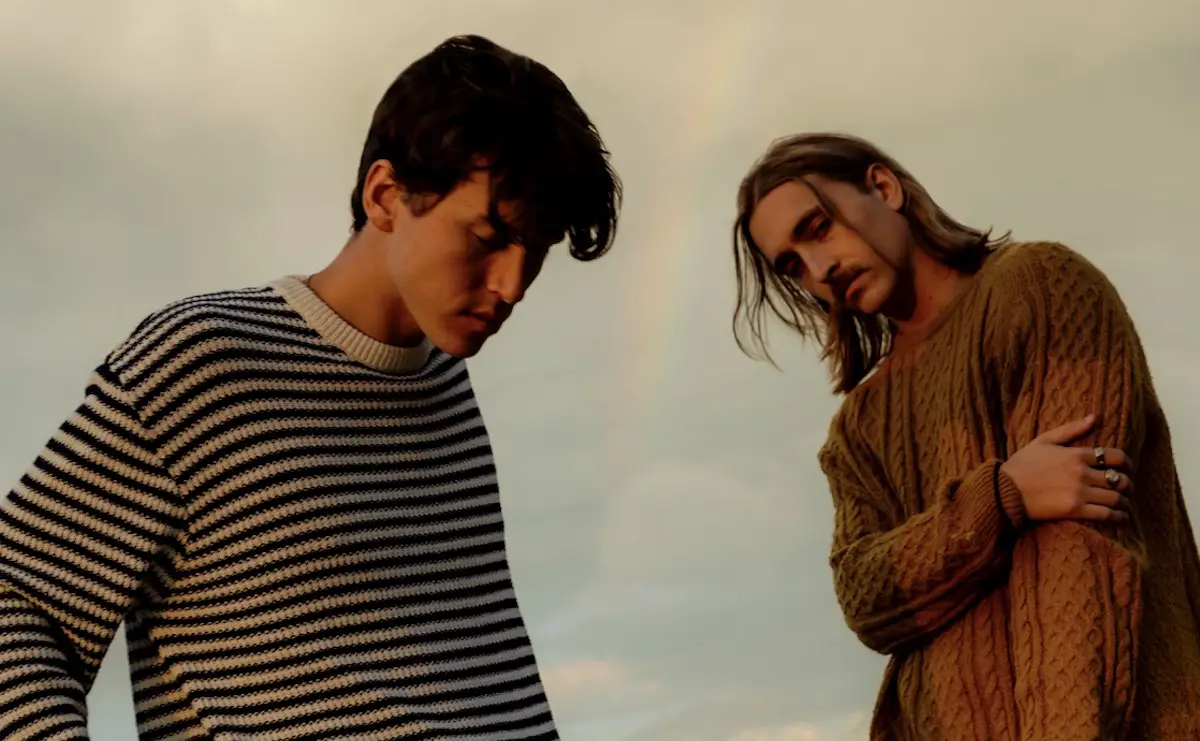
At the end of it all, I hope I lived it
A little different than just being alive
You could learn how to use all that you’ve given
Or you could spend all your days asking why
Knowing the philosophical bent of Eissman and Spurgeon, they have probably descended many a rabbit hole to discover those ways of living. Though all of their songs brim with earnestness, they reach into the chaos and emerge with glowing optimism. Broken hearts and searching minds may never truly rest, but they can find peace in the infinite unknowable.
Echoing that sentiment, Eissman adds, “We want we want to embrace the tragic reality and duality of a chaotic and broken world, while also looking for hope, at the end of it all.”
Though they look to the end, DWLLRS are just beginning.
Atwood Magazine sat down with Bren Eissman and Joey Spurgeon of DWLLRS to discuss their recent string of singles, TikTok fame, and spinning their chronic overthinking into art. Read our own bit of dwelling that came of it below!
We want to embrace the tragic reality and duality of a chaotic and broken world, while also looking for hope, at the end of it all.
— —
:: watch/listen to “End of It All” here ::
Stream: “End of It All” – DWLLRS
A CONVERSATION WITH DWLLRS

Atwood Magazine: Let's start at the beginning. DWLLRS is a bit of a baby band, relatively speaking, but you've known each other basically your whole lives. Can you give our readers just a little bit of a backstory?
Bren Eissman: Fifth grade we were on a basketball team together and up until mid-high school I think I was on mostly every team with Joey. We knew each other, but we were never close friends and didn’t hang out much until college when we roomed together. That’s where all our foundational conversations happened and where we became best friends.
What made you decide to start making music together as a band?
Bren Eissman: Joey had been making music his whole life.
Joey Spurgeon: Yeah, I started writing music when I was like probably 10 or 11 when I was learning how to play guitar. Then I started producing in high school and making really awful beats. Bren hadn’t really played music before we started living together, but he was a prodigy. He has a really beautiful voice as you all know. I taught him a few chords on guitar, and then he just picked it up and started writing really good songs off the bat.
We would always stay up super late, play video games, and have conversations, and that transitioned into us starting to write music and talk about making a band. I suppose I kind of forget how it how it actually went down. It felt so seamless, like it was supposed to happen.
Bren Eissman: Music for me started literally when I asked Joey to teach me chords. I played those same two chords for months and probably wrote like seven songs them. One of them ended up being the first song we released, which is really cool. It was seamless and authentic, and there was never really a moment where we were like, “Hey dude, we should combine our town this and start a band.” Instead it was just two friends having way too many deep talks, and making some songs from it, you know?
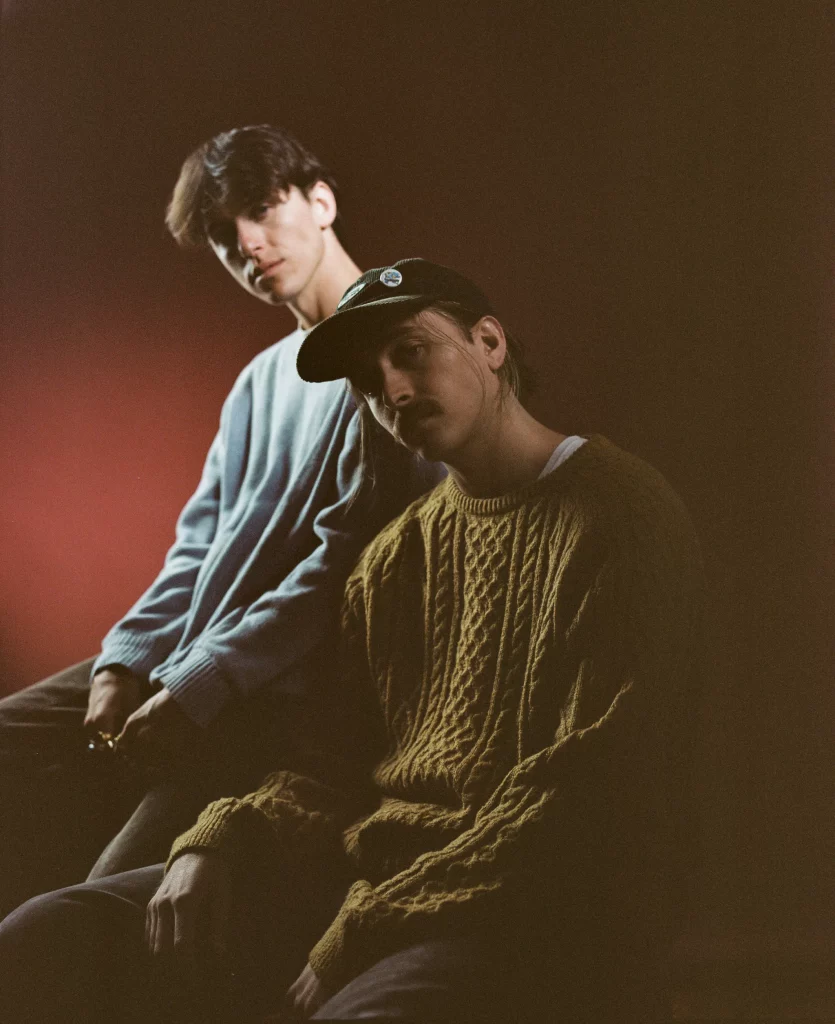
We’ve been able to meditate and talk on these topics of why we’re even doing music, what message we want to put out into the world, and what we want to do with our artistry and our expression.
I like that you brought up your first track because I saw that it released mere months before the pandemic hit, which means you've been pretty much coming up during a massive global trauma. What's it been like to build as artists during this time where you had to be separated from people?
Bren Eissman: It’s felt like we were babies incubating. It’s been kind of nice in the sense that it’s given us a lot of time to discover who we are being in this cut-off space making music. We’ve been able to meditate and talk on these topics of why we’re even doing music, what message we want to put out into the world, and what we want to do with our artistry and our expression. There’s so much duality between then and the reality of being able to play in the live space. It was so crazy for us to finally see people experiencing the songs in real time and seeing their faces while singing “Blue Spirits” back to us. For us it’s been three years of being cut off from that person-to-person music experience. For me, it was my first live music experience ever. It’s been wild.
I think that's a good point. When you're creating songs in isolation, there can be a disconnect between the numbers you're seeing the songs put up and recognizing that there are humans behind them. What was it like seeing that in person?
Bren Eissman: So fulfilling. Numbers on their own can help you realize that maybe this thing that you’re doing, this reach into the dark, maybe it’s paying off. That’s so clear to us, even when we get just one message — that doesn’t even have to be in person — from someone saying that our music spoke to them, or that it’s helped them through a rough time, or that it made them relate to some sort of emotion, even if it wasn’t the emotion that we were originally intending. Every person is experiencing the song in their songs in their own way, and that’s the reason why I’ve connected music so much.
When I was in like the darkest parts of my life, which was probably high school for me, I would listen to music and that was a way that I would cope. Me and Joey bond over that. I show him new music that he’s never heard before. He shows me the music that I’ve never heard before, which kind of embarrassing. It’s Frank Ocean. I’d never listened to Frank Ocean before I met Joey. He showed it to me. I was like, “Yo, this is trash.” And then now he’s one of my favorite artists of all time.
You said your music was born out of a mutual tendency to overthink. Is that where the name comes from?
Bren Eissman: That’s exactly where it comes from. My dad came up with it. I was in my bedroom back home, playing those two chords that Joey taught me and singing really loud. And he was like “Just call yourselves, ‘The Dwellers’ because you’re always overthinking. We heard that and thought, “That’s kind of a hard name. That’s sick.” And we kind of originally intended it to be a beach rock band with the sickest beach rock name ever.
Joey Spurgeon: We still have plans to make a surf rock band. One of these days.
Looking forward to that, but you have to come up with a name even more sick than DWLLRS.
Bren Eissman: Should we unveil it yet, Joey?
Joey Spurgeon: I don’t know if we should.
I guess that that that little teaser will have to do for our readers. So, I wanted to know, what do you tend to overthink about?
Bren Eissman: Everything. To be specific, I would say “existential reality.” Purpose, where we come from, where we’re going, what’s the meaning of it all? Mundanity too, like everyday romantic relationships. But also hate, life, death, love, art, and the roles they all play in everyday life. Plus, our careers and our identities.
Joey Spurgeon: It also depends on the day. Honestly, whatever we’re going through, we’ll probably have a one to two hour deep talk about it.
I want to talk quickly about ''Blue Spirits,'' which has become this huge phenomenon on TikTok. A lot of band music is blowing up on the app is because of the way that people engage with it. What is it like as an artist to see people integrating your song into their own creations?
Joey Spurgeon: It’s so cool. It’s incredible that our song is inspiring people to create these little cool pieces of art, you know?
Bren Eissman: I think when people can take a piece of a song and then create something new, it’s expanding. I love that TikTok empowers people to use songs in any way they want to then create something new with it.
This feels in a lot of ways like the logical conclusion of remix culture. Where do you think we go from here? What's the next thing?
Bren Eissman: AI integration so that people can compute a lot quicker in their brains. And then we’re probably all going to connect to each other in the cloud like in the metaverse.
Joey Spurgeon: It will probably be something like being able to feel songs.
@chandi.lynn he didn’t understand the instructions @deaconhans0
I think when people can take a piece of a song and then create something new, it’s expanding. I love that TikTok empowers people to use songs in any way they want to then create something new with it.
What would you say your mission statement or ethos is as creative partners?
Bren Eissman: We want to embrace the tragic reality and duality of a chaotic and broken world, while also looking for hope, at the end of it all.
You're just finishing up a tour with Claire Rosenkranz, but besides that, what does 2023 hold for DWLLRS?
Joey Spurgeon: An album. We’re not sure when yet, but it’s coming.
For fans of Atwood Magazine's Tunes & Tumblers podcast, how would you describe the sound of DWLLRS as a drink?
Joey Spurgeon: We have one we call the Tahoe. It’s got whiskey, orange liqueur, fresh squeezed orang and lemon juice, orange aromatic bitters, and rosemary.
Bren Eissman: That’s pretty much us.
— —
:: watch/listen to “End of It All” here ::
Watch: “End of It All” – DWLLRS
— — — —

Connect to DWLLRS on
Instagram & TikTok
Discover new music on Atwood Magazine
? © Cole Ferguson
:: Stream DWLLRS ::

